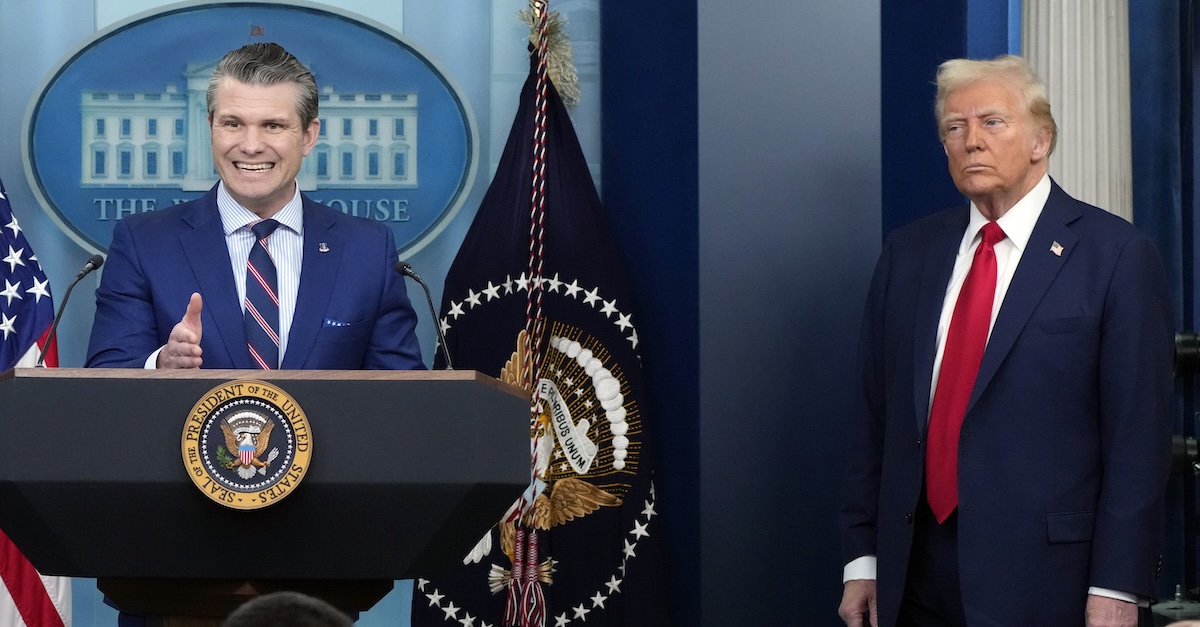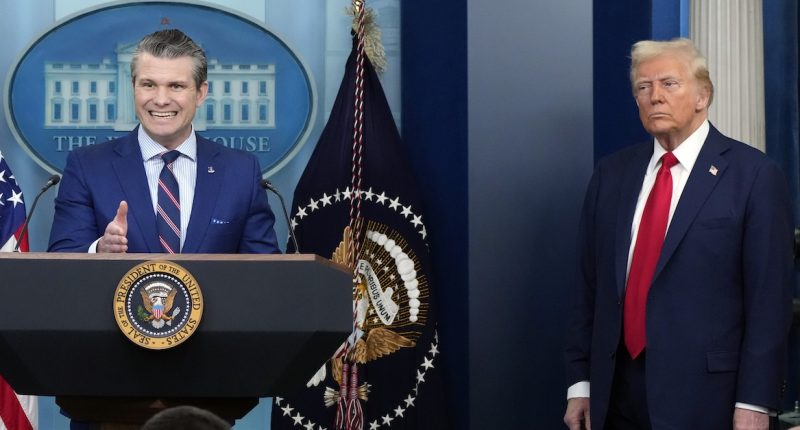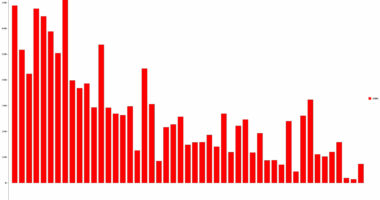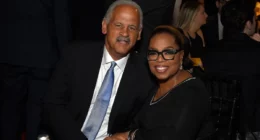
President Donald Trump listens as Defense Secretary Pete Hegseth speaks in the James Brady Press Briefing Room at the White House, Thursday, Jan. 30, 2025, in Washington (AP Photo/Alex Brandon).
A federal judge in Washington, D.C., on Tuesday blocked the Trump administration from enforcing the president’s executive order purporting to ban transgender people from serving in the military.
U.S. District Judge Ana Reyes issued a preliminary injunction halting the policy, reasoning that the plaintiffs were likely to win on their claims that the ban unconstitutionally violated equal protection by discriminating based on sex and transgender status.
“Plaintiffs face a violation of their constitutional rights, which constitutes irreparable harm. Indeed, the cruel irony is that thousands of transgender servicemembers have sacrificed — some risking their lives — to ensure for others the very equal protection rights the Military Ban seeks to deny them,” Reyes wrote in the 79-page order. “Defendants have not shown they will be burdened by continuing the status quo pending this litigation, and avoiding constitutional violations is always in the public interest.”
The courts order stems from a lawsuit filed on Jan. 28, 2025, by Nicolas Talbott and seven other individuals challenging Trump’s executive order, which was signed on his first day back in office. The complaint alleged that the ban on transgender service members violates the due process clause of the Fifth Amendment by discriminating against people “based on their sex and based on their transgender status.” Several additional plaintiffs were added to the suit after it was initially filed.
The administration’s policy was slated to go into effect this month.
In explaining how the military ban discriminated on basis of sex, Reyes cited to the U.S. Supreme Court’s landmark 2020 decision in Bostock v. Clayton County. In that case, the court held that the prohibition on sex discrimination in Title VII of the Civil Rights Act of 1964 included discrimination based on sexual orientation and transgender status. The majority opinion was penned by Justice Neil Gorsuch, who was appointed to the court by Donald Trump.
Reyes conceded that while Bostock is cabined exclusively to Title VII, but she added that the court’s “reasoning is not.”
“The Supreme Court deduced it impossible — end stop — to discriminate against a transgender person without discriminating against that person based on sex,” she wrote (emphasis in original).
The Trump administration previously asserted that the court should defer to the Executive Branch on military matters, but Reyes emphasized that the Justice Department was not seeking “judicial deference to military judgment,” rather, it was urging “judicial abdication.”
The judge during a hearing last week lambasted an attorney with the Justice Department for highlighting a series of shoddy scientific combat readiness studies cited by the Pentagon when issuing the anti-transgender policy. Reyes said the Pentagon’s directive and subsequent guidance “grossly misquote” and “egregiously misquote” the studies in question.
Reyes at the hearing said the Pentagon “cherry-picked” the data it wanted to use and “misrepresented even that” in order to give the false appearance that transgender service members were less well-suited to deployment than cisgender service members. Rather, she mused, the data showed something more like the opposite.
“The law does not demand that the Court rubber-stamp illogical judgments based on conjecture,” she wrote in Tuesday’s order. “In fact, it requires the opposite because the executive does not enjoy a ‘wholesale license to discriminate in matters of military policy.”
Reyes also determined that Trump’s order — which said that the “adoption of a gender identity inconsistent with an individual’s sex conflicts with a soldier’s commitment to an honorable, truthful and disciplined lifestyle, even in one’s personal life” — was “littered with animus and pretext.”
“The Military Ban is soaked in animus and dripping with pretext. Its language is unabashedly demeaning, its policy stigmatizes transgender persons as inherently unfit, and its conclusions bear no relation to fact,” she wrote. “The Military Ban is also unique in its unadulterated expression of animus an expression of animus that no law the Supreme Court has struck down comes close to matching.”
Jennifer Levi, the senior director of transgender and queer rights for GLAD Law and one of the lead attorneys in the case, praised Reyes’ ruling, saying it “speaks volumes.”
“The Court’s unambiguous factual findings lay bare how this ban specifically targets and undermines our courageous service members who have committed themselves to defending our nation,” she said. “Given the Court’s clear-eyed assessment, we are confident this ruling will stand strong on appeal.”
Reyes said her order will not go into effect until March 21, to allow the administration to file an emergency appeal.
Love true crime? Sign up for our newsletter, The Law&Crime Docket, to get the latest real-life crime stories delivered right to your inbox.








